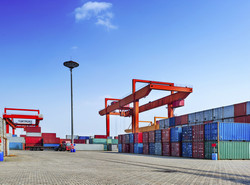Towards efficient and green freight corridors
According to Europe 2020, freight transport and logistics are key to transforming the EU into a smart, sustainable and inclusive economy. One way to accomplish this is through greening activities that convert transport hubs into low-carbon, resource-efficient and competitive freight corridors. With this in mind, the EU-funded ECOHUBS(opens in new window) (Environmentally coherent measures and interventions to debottleneck hubs of the multimodal network favoured by seamless flow of goods) project set out to deliver several tools that can increase capacity at ports and terminals, thus leading to considerable reductions in carbon footprint. Project partners developed a cooperative model that enables low-carbon, resource-efficient and secure transportation services. They created an ecosystem business and information architecture allowing multimodal terminal network stakeholders to connect, exchange information and interact while improving their joint capabilities when using the model. This results in faster communications, shared resources and harmonised actions. The ECOHUBS team also developed a range of services facilitating end-to-end co-modal, low-carbon transport solutions that maximise the use of terminal and logistics resources. These include a calculator that provides missing carbon footprint information in multimodal terminal networks, integrated competitive services for managing improvements in eco-efficiency and a measuring system for long-term monitoring of greening activities. Four ECOHUBS demonstrators were validated at modern intermodal terminals in Belgium, Italy, Slovenia and Sweden. The various solutions showed a 20 % increase in terminal capacity and over 50 % reduction in carbon footprint. ECOHUBS introduced the tools necessary for sustainable freight transport and logistics networks while enhancing their environmental impact. Terminal owners and operators, freight forwarders and shippers now have at their disposal various solutions for seamless cooperation and communication, and services that will make co-modal networks more attractive to use.



